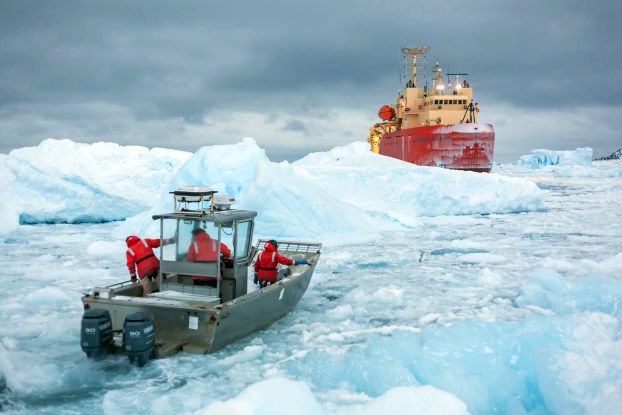What we support
GEO-supported investigators are discovering new species, developing innovative methods to detect natural processes and providing unique opportunities for students to engage in field and laboratory work.
With an annual budget of approximately $1.47 billion, GEO supports hundreds of academic and research organizations across the nation's states and territories.
The directorate's priorities include:
- Natural hazards and extreme events: GEO supports research on understanding and predicting natural hazards such as earthquakes, hurricanes and volcanic eruptions to improve preparedness and mitigation strategies.
- Environmental sustainability: GEO supports research on sustainable resource management, including water, energy and mineral resources, particularly critical minerals.
- Polar science: GEO supports research on polar regions to understand their unique ecosystems, climate dynamics and global impacts.
- Earth's climate: GEO supports research on climate science to help us understand how the climate is related to earth systems, environmental processes and human health.
- Interdisciplinary collaboration: GEO fosters collaborations across scientific disciplines to address complex geoscience challenges across the entirety of the Earth system.
- Broadening participation: GEO supports efforts to broaden participation, especially promoting engagement among traditionally underrepresented groups in the geosciences.

Divisions and offices
Division of Atmospheric and Geospace Sciences (AGS): Supports research, facilities and education on atmospheric processes and our planet's interactions with the Sun.
Division of Earth Sciences (EAR): Supports research, education and infrastructure that enable us to better understand Earth’s structure, composition and evolution.
Division of Ocean Sciences (OCE): Supports research, infrastructure and education on all aspects of the global ocean, including how they impact and are impacted by human activities.
Division of Research, Innovation, Synergies and Education (RISE): Fosters connections among scientific discoveries, societal needs and education for the geoscience community.
Office of Polar Programs (OPP): Promotes research, engineering and education in and on the polar regions.



